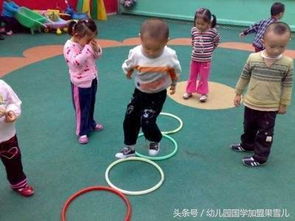开展体育游戏的目的及意义
Exploring the Educational Purpose of Sports Games
Sports games, whether played physically or virtually, serve multifaceted purposes beyond mere entertainment. They hold immense potential for educational enrichment, fostering cognitive, physical, and socioemotional development in individuals across various age groups. Let's delve into the educational objectives that sports games can fulfill:
Engaging in sports games encourages physical activity, promoting health and wellbeing. Whether it's through interactive video games or active participation in sports like soccer, basketball, or tennis, individuals develop motor skills, coordination, and endurance. Educators can leverage this aspect to emphasize the importance of regular exercise, healthy lifestyle choices, and the prevention of sedentary habits.
Team sports games inherently teach the value of teamwork, cooperation, and collaboration. Players learn to communicate effectively, strategize, and work towards a common goal. Such experiences are invaluable for fostering social skills, empathy, and leadership qualities. Educational settings can utilize team sports simulations to promote peertopeer interaction, conflict resolution, and appreciation for diversity.
Sports games often present dynamic scenarios requiring quick thinking and adaptive decisionmaking. Players must analyze situations, anticipate opponents' moves, and devise effective strategies on the fly. These cognitive challenges enhance problemsolving skills, critical thinking, and spatial awareness. Incorporating sports game simulations into educational curricula can stimulate students' mental agility and resilience in facing reallife challenges.
Participation in sports games cultivates resilience, perseverance, and discipline. Players learn to cope with setbacks, handle pressure situations, and bounce back from defeats. Such experiences nurture a growth mindset, instilling values of sportsmanship, integrity, and selfimprovement. Educational programs can harness the competitive spirit of sports games to teach resiliencebuilding techniques and ethical decisionmaking.

Sports games serve as a universal language, transcending cultural barriers and fostering global connections. They provide a platform for experiencing diverse cultures, traditions, and perspectives. Through sports simulations, individuals gain insights into the historical significance of various sports, cultural rituals, and societal values. Educational initiatives can leverage this crosscultural appeal to promote intercultural competence, empathy, and appreciation for diversity.
Sports games offer opportunities for integrating educational content seamlessly into gameplay. Concepts from mathematics, physics, biology, and even history can be incorporated into sports simulations, making learning more engaging and relatable. Educators can design customized gamebased learning experiences tailored to specific academic objectives, thereby enhancing retention and comprehension.
In conclusion, sports games possess immense educational potential, extending far beyond their entertainment value. By harnessing the intrinsic qualities of sports—physical activity, teamwork, strategic thinking, and cultural significance—educators can create immersive learning experiences that cater to diverse learning styles and interests. Embracing sports games as educational tools not only enriches academic outcomes but also nurtures holistic development, equipping individuals with essential life skills for success in an everchanging world.